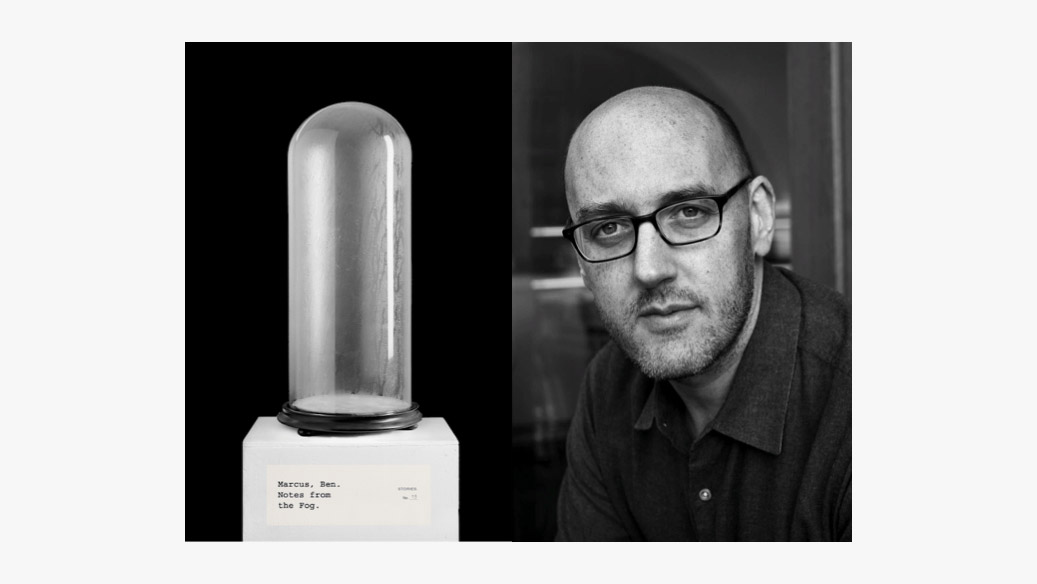I think often about grief writing and almost always in relation to how a professor once told me to underwrite grief, that to downplay it was the most effective way to portray the condition.
In the fiction piece “Details,” which was published in Columbia Journal’s fifty-third issue, Katelyn O’Brien does anything but. The narrator’s account of the aftermath of her sister’s suicide is honest, harrowing, self-accusatory, painful, and deeply heartbreaking. As the title suggests, O’Brien centers her piece on the minutiae of sorrow: the reticence surrounding it, the mundanity of the documents that come after, the chocolate croissants eaten at the wake now reminding her of the smell of the stale Parish Hall, the lingering scent of eucalyptus oil on her sister’s skin. “Details” is a confrontation with mourning, direct and authentic. But above all, it is a reminder that grief is hardly ever linear, and that to embody its inconsistencies in writing, as O’Brien so movingly does, is just as profound a way to depict it.
Details
Katelyn O'Brien
What they don’t tell you about cremation is that it’s not a quick, one-step system. It’s not one minute a dead sister laid out with her hair combed back and her arms folded, and the next minute a tidy doggie bag of pallid brown ash. It’s a procedure so mundane and methodical that it reads like a recipe on the side of a Betty Crocker cake mix box.
They don’t tell you that they place your big sister, the same one that built you soft, pillowy forts and ordered you Chinese when your parents were out, in the human equivalent of a takeaway box for your sweet-n-sour leftovers and nuke her on high for a couple hours only to take those brittle bitty bone shards and pulverize them into a fine pile of dust. But just before that, the crematorium worker who just barely finished high school scavenges the dear sister’s remains for any bit of metal: that single filling in her second bicuspid, her sterling silver nose ring, that surgical pin in her left arm from when she broke it in that car accident from before you were born. Just like he did with some other guy’s grandmother the day before and just like he will for a nice lady’s husband tomorrow. And you wonder if those precious metals of your precious loved ones find their way into his pockets.
They don’t tell you that every bereaved family receives a marbled, forest-green and gold folder detailing this information. It even features a handy vocabulary cheat sheet putting funeral home jargon into layman’s terms for the living. “Final disposition” is just a fancy phrase for where you stash the ash, and a mere eighty dollars extra distinguishes a “mini keepsake urn” from a “tribute cremation container.”
They don’t need to tell you that your mother’s grandiose plans to scatter the ashes somewhere significant and meaningful will never come to fruition. Really, she’ll just keep them in a hokey little box made in China in her bottom dresser drawer along with a Ziploc baggie holding your sister’s fine auburn ponytail.
What they don’t tell you is that your father keeps this information in his home office tucked away in a file. They don’t tell you that it’s the same file with her grade school report cards and high school diploma. That it’s the same file that holds her death certificate and the coroner’s record.
They don’t dare tell you the details. Especially the one scribbled down at the bottom of Coroner Ruth’s little report of horrors. The one that says your big sister, the one that dropped you off at summer camp and wrote you every day, shot herself in the face. She did this at approximately 11:32 p.m. on a Tuesday evening—shortly after the airing of the Tonight Show, and after twenty-four years of living. What they tell you is that your big sister, who had been so so sick for so so long, finally got her smile back.
But really she blew her smile into a thousand ragged, pulpy pieces. Those lips she once pressed onto your scraped knees, feverish forehead, and sticky cheeks were ripped into a mangled jack o’ lantern gash in those last lonely minutes of her sweet, sad little life.
They don’t tell you any of this, but you find out anyway. You find out because you are bored on a Thursday afternoon with the house to yourself.
Now, it’s your turn not to tell.
You don’t tell them that when you ate those three chocolate croissants at your sister’s wake, they were the last three chocolate croissants to ever touch your lips. Now, even seeing one tucked in its pleated paper cup behind the curved glass of a bakery’s counter leaves your mouth suddenly tasting like the smell of the stale Parish Hall, where you leaned against the wall and watched your mother fall apart again and again in each embrace of the steady stream of sympathizers offering condolences. And you don’t tell them that, while she flooded her leaky ribcage with chardonnay and your father flooded the whole house with baseball commentary with the new surround sound system and satellite he had installed a week after the funeral, you were agonizing over how to explain the sudden lack of sister to the family pet that kept a persistent vigil at the foot of her bed. No one told him anything either.
You don’t tell them that at your first boy-girl barbecue party (a month after the funeral), you heard the whisper of your sister’s name and then talk of hellfire and damnation. You don’t tell them how your skin prickled and the dime-sized valley where your collarbones meet turned tight with anxious, prepubescent rage. You don’t tell them how you threw down your Dixie cup of lemonade like a gauntlet and readied yourself to assume the role of Suicide’s Crusader in defense of your sister’s memory. You don’t tell them that, as you were walking over to face your accusers, your jelly sandal got caught on a rock in the backyard and your whole body pitched forward as the hot asphalt rushed to meet you. You don’t tell them how you spent the rest of the party crying in the kitchen with a dishtowel pressed against your newly bloodied nose while two mothers fussed over the scarlet bloom of blood on your T-shirt. You don’t tell them it was your sister’s T-shirt. You don’t tell them that that’s why you cried.
You don’t tell them that you’ve calculated the ratio of photos around the house featuring her or you to be about 5:1, and that your sister’s smile has become a haunting Madonna in the cold stone church of grief you all move through. You don’t tell them that even at eleven you were old enough to realize that a posthumous birthday celebration complete with a cake and twenty-five candles is an embarrassing affront to all parties involved. You don’t tell them that, at Christmas time, you’re always the first to the mailbox just in case one of your sister’s friends has the audacity to send a glossy Season’s Greeting boasting a picture of herself posing with a chubby baby and dimple-chinned husband who weren’t around before. When the mailman comes, you take any of these kinds of cards and bring them up to your room. You don’t tell them that, despite your better judgment, you open them all and you feel sick over how selfish they are to want to flaunt their happy endings. You don’t tell them that you typically spend the next half hour or so thinking about your sister’s old boyfriend who took you to the local water park the last summer she was still alive and you wonder how he’s doing now.
You don’t tell them that, as you grow older, you’ve learned to manipulate your parents’ deep and lingering grief to suit your own textbook teenage rebellion. You don’t tell them you only wear eucalyptus essential oil, your sister’s signature scent, to distract them from the late nights you spend with boys and booze, because before they have a chance to inquire about your whereabouts, they’re swept up in a sensory sea of long lost eucalyptus lotion love and will have forgotten all about you.
You don’t tell them that it was you who destroyed the audiocassette that held a recording of the funeral service. You don’t tell them that you can’t count how many times you’ve walked through the front door to hear the eulogy on a loop while your mother stands at the stove poking at a pan of chicken spaghetti, not bothering to wipe away the black tracks of mascara running down her cheeks. You don’t tell them that you hate chicken spaghetti. It was your sister’s favorite. You don’t tell them that, as you crouched in your closet and pulled at the tape’s shining and translucent brown intestines, you realized the color and texture bore a striking resemblance to your sister’s eyes, and you don’t tell them how you suddenly felt as if those same eyes were watching you. But they weren’t only watching. You’re sure they were judging. You don’t tell them how small and dirty and desperate you felt sandwiched between her sequined junior prom dress and her softball uniform, with the spent tangle of tape sitting in your lap.
You won’t tell them that the pearly perfect pedestal they’ve placed her on casts a shadow so wide and dark you can’t find yourself. You won’t tell them that the sister turned guardian angel is hovering so close to you that her silvery wings are beating you deep into the ground and you can’t climb out. You won’t tell them that all you really want is to take those broken bits of bone and ash from your mother’s dresser, plant them in the carpet your sister soaked red, and throw open the curtains until a little green, sister-shaped sprout pokes its nose through the thick, stinking decay she left behind.




